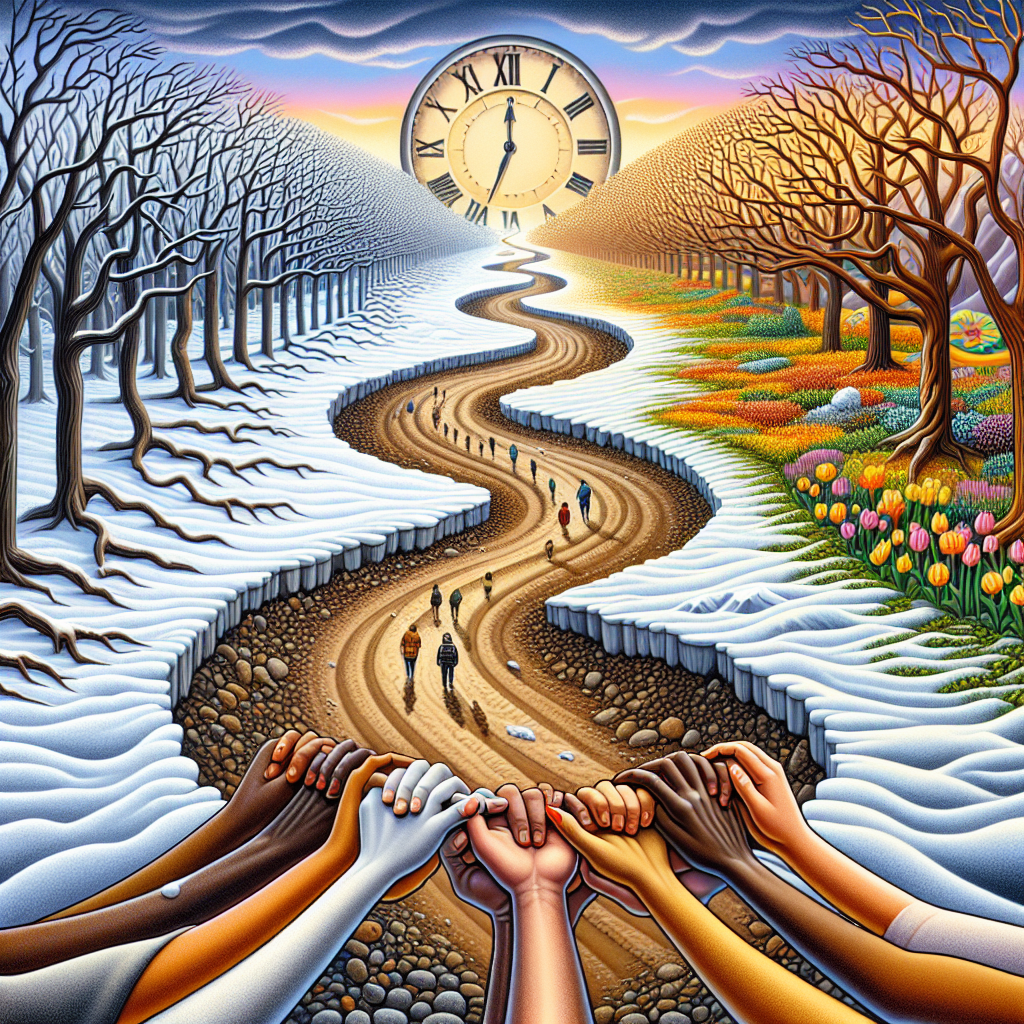Your cart is currently empty!
Tag: Activism
Meet Kerry Kennedy, RFK Jr’s sister, who opposes him and Donald Trump: from human-rights activism to a troubled marriage to ex-New York governor Andrew Cuomo … and supporting her demisexual daughter
Kerry Kennedy believes that despite her fundamental political differences with her brother, Robert F. Kennedy Jr, they can “still find ways of loving each other”, she said in an interview with CNN.
Kerry Kennedy is the daughter of Ethel and Robert F. Kennedy, the brother of John F. Kennedy. Photo: @kerrykennedyrfk/Instagram According to The Hill, there has been widespread speculation that US President Donald Trump has picked RFK Jr to be Health Secretary in his new administration.The rumours have caused widespread alarm. RFK Jr has been known to make false claims about vaccines, plus other erroneous, health-related comments, such as how chemical exposure in water can lead to sexual dysphoria, according to CNN.

Kerry Kennedy (centre, with the Duke and Duchess of Sussex) supported Kamala Harris in the US presidential election. Photo: @kerrykennedyrfk/Instagram Kerry, a Democrat who openly supported Kamala Harris and rallied her siblings to oppose her Trump-supporting brother in the presidential election, told CNN that she did not trust him to be in charge of health in the United States.Meet Kerry, the Kennedy who isn’t afraid to speak out about the other Kennedy.
Kerry Kennedy is a human-rights activist

Kerry Kennedy (pictured with Nelson Mandela) is known for her activist work. Photo: @kerrykennedyrfk/Instagram Kerry is president of the Robert F. Kennedy Human Rights organisation, which focuses on child labour, women’s rights, disappearances and indigenous land rights, according to its website. It also states that Kerry has led “hundreds of human rights” delegations in support of these causes. Kerry is the chair of the Amnesty International USA Leadership Council and has also served on the boards of directors for the United States Institute of Peace; Human Rights First; and Laureates and Leaders, her biography says.
She’s Kennedy royalty

Kerry is the seventh of Ethel and Robert F. Kennedy’s 11 children. Photo: @kerrykennedyrfk/Instagram Kerry, 65, is the seventh of Ethel and Robert F. Kennedy’s 11 children. Robert was the brother of John F. Kennedy, the US president assassinated in 1963. Less than five years later Robert was also gunned down. He was campaigning to be president when he was shot and killed.
Kerry Kennedy, the seventh child of Robert F. Kennedy and Ethel Kennedy, has been making headlines for her outspoken opposition to both her brother, Robert F. Kennedy Jr., and former President Donald Trump.Kennedy, who is well-known for her human-rights activism and work with the Robert F. Kennedy Human Rights organization, has been critical of her brother’s anti-vaccine stance and promotion of conspiracy theories. In a recent interview, she expressed her disappointment in her brother’s beliefs and the harm they are causing to public health.
But Kennedy’s turbulent personal life has also been a topic of conversation. Her marriage to ex-New York governor Andrew Cuomo ended in a highly-publicized divorce, with rumors of infidelity and political ambitions swirling around the couple. Despite this, Kennedy has remained dedicated to her work and her family, including her daughter Mariah, who recently came out as demisexual.
Kennedy has been a vocal supporter of her daughter and the LGBTQ+ community, using her platform to advocate for acceptance and understanding. In a world filled with division and hate, Kerry Kennedy stands as a beacon of hope and compassion, fighting for justice and equality for all.
Tags:
- Kerry Kennedy
- RFK Jr’s sister
- Human rights activism
- Troubled marriage
- Andrew Cuomo
- Demisexual daughter
- Political family drama
- Kennedy family
- Anti-Trump activism
- Progressive politics
#Meet #Kerry #Kennedy #RFK #Jrs #sister #opposes #Donald #Trump #humanrights #activism #troubled #marriage #exNew #York #governor #Andrew #Cuomo #supporting #demisexual #daughter
Action is key to activism, MLK Symposium speaker says
The keynote speaker at the University of Michigan’s 2025 Rev. Dr. Martin Luther King Jr. Symposium had a clear message for modern activists seeking to sustain King’s fight against systemic inequities.
“Get on with it. Don’t overthink it,” said Erika Alexander, actress, director, producer — and an activist herself. “And young activists, do you know what? Suck it up, man. Life is disappointing, but don’t get discouraged. And don’t stop just because you did one thing.”
The MLK Symposium kicked off Jan. 20 with the keynote lecture, a conversation between Alexander and Daphne C. Watkins, a University Diversity and Social Transformation Professor, and the Letha A. Chadiha Collegiate Professor of Social Work and professor of social work in the School of Social Work.

Erika Alexander (left) speaks with Daphne C. Watkins, the Letha A. Chadiha Collegiate Professor of Social Work, during her keynote conversation for the 2025 Rev. Dr. Martin Luther King Jr. Symposium. (Photo by Dieu-Nalio Chery, Michigan Photography) The opening event took place at Hill Auditorium and was livestreamed.
Now in its 39th year, U-M’s MLK Symposium celebrates King’s life and legacy. In addition to the keynote discussion, this year’s theme, “Restless Dissatisfaction: An Urgent Call for the Pursuit of Justice and Equality,” will be explored by departments and units across campus in more than 25 events and activities.
The symposium’s call to action was inspired by King’s remarks while accepting the Nobel Peace Prize in 1964 and in his “Where Do We Go from Here” speech delivered at the Southern Christian Leadership Conference in 1967.

Tabbye Chavous, chief diversity officer and vice provost for equity and inclusion, welcomed the audience the 2025 MLK Symposium. (Photo by Leisa Thompson, Michigan Photography) In the former, King implored people to sustain a feeling of “divine discontent” that prohibits them from settling for unmet goals. In the latter, he tasked Americans with embracing “divine dissatisfaction” until inequity among people has ceased.
The keynote was co-sponsored by Office of Academic Multicultural Initiatives under the Office of Diversity, Equity & Inclusion and the Stephen M. Ross School of Business, with support from the William K. McInally Memorial Lecture Fund.
“Dr. King’s words compel us to confront injustice in all its forms — racial, economic and social — and to bridge the gap between the world as it is and the world as it should be,” Tabbye Chavous, chief diversity officer and vice provost for equity and inclusion, said in her welcoming remarks.
“Progress, he reminds us, requires continuous effort, courage and vigilance. Your presence this morning in person or virtually is an act of this commitment and reaffirms shared dedication to advancing justice, equity and inclusion.”
Laurie McCauley, provost and executive vice president for academic affairs, also urged attendees to maintain King’s restless spirit.
“Our country has made great strides from the time when young Black students were met with violence for simply trying to attend school with their white peers. And yet we have ample daily reminders that racism and inequality still infect our society,” McCauley said.
“From prejudicial attitudes to systems that continue to injure people of color and people who are perceived as different. The struggle for the harmonious civilization Dr. King envisioned must continue.”
Watch a video of the full MLK Symposium keynote ceremony. Alexander has appeared in numerous films and television series, including as Maxine Shaw in “Living Single,” which earned her two NAACP Image Awards; as Detective Latoya in the movie “Get Out”; and as Meredith Lockhart in “Swimming with Sharks.”
She also co-directed the film “The Big Payback,” which premiered on PBS on Martin Luther King Jr. Day in 2023, and she co-produced the Emmy-nominated documentary “John Lewis: Good Trouble.”
Alexander is a board member for the nonprofit group One Fair Wage and is involved with social and racial justice organizations, including The Poor People’s Campaign, Color of Change, the NAACP and the United Negro College Fund.
Alexander and Watkins discussed the importance of community, how marginalized people cope when faced with opposition, and the power of storytelling to drive social change.
In reflecting on how a strong community positively affected her as a young Black woman, Alexander shared that she’d spent most of her childhood in Flagstaff, Arizona, where she and her siblings relied heavily on their community for support, especially when their mother and father, who was a preacher, traveled for work.
“I spent my whole life living what Tennessee Williams calls … ‘by the kindness of strangers,’” Alexander said.

Donovan Rogers (left), a U-M graduate who opened the MLK Symposium by singing The Black National Anthem, and Victoria Wilson, an LSA undergraduate student, add liquid to a bowl of sand as part of a performance by writer and artist Cherise Morris. (Photo by Leisa Thompson, Michigan Photography) Her family leaned on a range of diverse neighbors who lived nearby, including members of the Navajo and Hopi tribes and Mexican and German Lutheran communities.
“Growing up, I thought of all of them as my community,” Alexander said. “And that is not just my story. It’s not unique to me. It’s a very Black American story to feel like you … maybe don’t have consistent family to depend on. … But if it were not for that beloved community, then I don’t think I would be where I am right now.”
Discussing her own coping strategy when faced with obstacles, Alexander said that, as a woman of color, she’s learned to adapt and develop a wide range of skills.
“I’m a shape shifter, and if you are a marginalized person you’d better become one. You have to learn a lot of skill sets to get the things you want done. I’m not an anomaly. That is just what it is,” she said.
Finally, to illustrate the power of storytelling, Alexander pointed to what she called the “Maxine Shaw effect,” a reference to the enduring influence of Maxine Shaw, a strong, independent character Alexander portrayed on the television show “Living Single” in the 1990s.
Although the show ended nearly 30 years ago, syndication has kept Maxine alive, and Alexander said she has been told repeatedly that Maxine, who was a lawyer on the show, helped inspire young women and men of color to pursue law school or other higher education.
As a result, Alexander, in partnership with corporate and nonprofit partners, has created an educational curriculum that she hopes will build upon the appeal of Maxine and motivate a new generation of leaders.
The symposium concluded with Cherise Morris, a writer, interdisciplinary artist and ritualist, who performed, along with three collaborators, an interpretation of writings from her forthcoming book, “the cosmic matter of Black lives.”

Writer and artist Cherise Morris (in the foreground), along with an artist who goes by Kesswa, perform a live interpretation of writings from Morris’ forthcoming book. (Photo by Dieu-Nalio Chery, Michigan Photography)
“Action is key to activism,” MLK Symposium speaker emphasizesIn a powerful and inspiring speech at the annual MLK Symposium, the keynote speaker stressed the importance of taking action in order to create meaningful change in our society. Drawing upon the legacy of Dr. Martin Luther King Jr., the speaker reminded the audience that activism is not just about words or intentions, but about actively working towards justice and equality for all.
The speaker highlighted the need for individuals to engage in direct action, whether it be through peaceful protests, community organizing, or advocacy work. They emphasized that in order to truly make a difference, we must be willing to step outside of our comfort zones and challenge the status quo.
Furthermore, the speaker urged the audience to be persistent and resilient in their activism, as social change is often a long and difficult process. They emphasized the importance of staying dedicated to the cause, even in the face of adversity or setbacks.
Overall, the message was clear: action is key to activism. It is not enough to simply talk about change or hope for a better future – we must actively work towards it. As we reflect on the legacy of Dr. King and the civil rights movement, let us be inspired to take meaningful action in our own communities and strive towards a more just and equitable society.
Tags:
- activism
- MLK Symposium
- civil rights
- social justice
- Martin Luther King Jr.
- community engagement
- advocacy
- racial equality
- activism movements
- social change
- activist strategies
- MLK legacy
#Action #key #activism #MLK #Symposium #speaker
Trump urged to pardon 76-year-old grandmother, others in prison for pro-life activism
Amid newly inaugurated President Donald Trump’s pardon of nearly 1,500 January 6 protesters, anti-abortion groups are calling on the president to pardon a 76-year-old grandmother and 20 others who were imprisoned and prosecuted for pro-life protests under the Biden Department of Justice.
One group, the Thomas More Society, a law firm specializing in pro-life cases, filed a petition to the new president in which it laid out the legal grounds for him to issue pardons and pointed out how President Joe Biden abused the justice system to target these pro-life activists.
Steve Crampton, a senior counsel at the Thomas More Society, told Fox News Digital that it is “absolutely vital” these activists be pardoned to restore equality under the law.
“We hope by President Trump’s actions here that he will restore some sanity and rule of law to the approach of the Department of Justice and the FBI, but also help move this culture back toward a culture of life rather than one of death,” said Crampton. “This small act on his part would, in fact, serve to kind of ignite a momentous movement toward restoring a respect for life in this nation that’s so desperately needed.”
WHITE HOUSE HINTS AT ‘MASSIVE’ ANNOUNCEMENT FROM PRESIDENT TRUMP ON FIRST FULL DAY IN OFFICE

President Trump signs pardons for Jan. 6 defendants in the Oval Office at the White House on Inauguration Day, Jan. 20, 2025. (Reuters/Carlos Barria)
Trump indicated several times during his campaign that he is open to issuing pardons for some of these pro-lifers who were prosecuted under a federal law called the Freedom of Clinic Entrances (FACE) Act. The activists were convicted of FACE Act violations for participating in various “sit-in” protests inside abortion clinics in Washington, D.C., Nashville, Detroit, Long Island and Manhattan.
According to the Thomas More Society, Biden’s Department of Justice used the FACE Act to increase sentences for crimes that would otherwise have been simple trespassing charges. The group says Biden sought to make examples of these pro-lifers, prosecuting them to the fullest extent of the law, despite their sit-in protests inside abortion clinics being entirely peaceful and with no threat of violence or intimidation.
Now that Trump is back in the White House, the Thomas More Society believes he can restore justice for these 21 activists and, in so doing, help restore confidence and trust in the justice system among the American people.
“In my lifetime, I’ve never seen a president honor his campaign promises the way this president has,” said Crampton. “So, we’re very hopeful that he will do so again in this case. And for these people who are really just salt of the earth, the best kind of folks that ought to be in their communities doing good rather than behind bars.”
TRUMP PARDONS NEARLY EVERY JAN 6 DEFENDANT BUT SAYS HE’S JUST GETTING STARTED

Lauren Handy, director of activism for Progressive Anti-Abortion Uprising, in Washington, D.C. on April 2, 2022. (Eric Lee for The Washington Post via Getty Images)
Of the 21 activists prosecuted under the Biden administration’s use of the FACE Act, nine are currently in prison. Several of those in prison are elderly, with three, Jean Marshall, Paullette Harlow and Joan Andrews Bell, in their 70s. The eldest is Bell, who, at 76, has seven adult children and seven grandchildren. She was sentenced to over two years in prison.
One activist, Heather Idoni, 59, who was sentenced to two years, has undergone serious health difficulties and suffered a minor stroke while in prison.
The longest prison sentence went to 31-year-old Lauren Handy, who is currently serving a nearly five-year sentence for her role in organizing a 2020 sit-in protest at the Washington, D.C., Surgi-Clinic run by Dr. Cesare Santangelo.
Also facing prison time is 89-year-old Eva Edl, a survivor of a communist concentration camp, who has been active in the pro-life movement for decades.
LEADERS FROM AROUND THE WORLD REACT TO PRESIDENT TRUMP’S WHITE HOUSE RETURN

Anti-abortion demonstrators in front of the Supreme Court building, on the day justices heard arguments in the Mississippi abortion rights case, in Washington, Dec. 1, 2021. (Reuters/Jonathan Ernst)
CLICK HERE TO GET THE FOX NEWS APP
“Down is up and up is down in this case,” said Crampton. “These people are folks who, some of them, have adopted several special-needs children from places like Ukraine. Some are missionaries to China and Ukraine and the worst places on the planet, going out of their way to do good to people that are in desperate need. These are folks that ought to be receiving those citizenship medals that President Biden is handing out to the likes of George Soros, who is trying to destroy our nation.”
“We must restore the rule of law,” he went on. “The questioning of Mr. Trump’s Cabinet appointees this past week, ironically enough, from the left, points again and again, back to the need not to single out political opponents for prosecution and so forth.”
“We have recently undertaken a disrespect for the rule of law that has undermined any respect for authority in general, let alone the law in particular,” he said. “So, I really think that this also is a small step back to restoring that absolutely essential respect for the rule of law that we must have if America is to survive.”
President Trump is facing renewed calls to pardon a 76-year-old grandmother and several others who are currently serving time in prison for their pro-life activism.Mary Wagner, a Canadian citizen, has been incarcerated in the United States for her peaceful protests at abortion clinics. Despite her advanced age and nonviolent tactics, she was sentenced to prison for her beliefs.
In addition to Wagner, there are many other individuals who have been imprisoned for their pro-life advocacy, including David Daleiden, Sandra Merritt, and others involved in the Center for Medical Progress undercover videos exposing Planned Parenthood’s sale of fetal body parts.
Advocates argue that these individuals have been unfairly targeted and punished for exercising their First Amendment rights and standing up for the sanctity of life. They are urging President Trump to pardon these individuals and grant them clemency.
As the end of his presidency approaches, President Trump has the opportunity to right these perceived wrongs and show his support for the pro-life movement. Will he heed the calls for justice and grant pardons to these individuals, or will their activism continue to be silenced behind bars? Only time will tell.
Tags:
- Trump pardon plea for elderly pro-life activists
- Pro-life advocates seek presidential pardon
- Advocates urge Trump to pardon imprisoned activists
- Presidential pardon requested for elderly grandmother
- Trump urged to grant clemency to pro-life prisoners
- Pardon plea for 76-year-old grandmother in prison
- Pro-life activists seek relief from Trump administration
- Advocates petition for pardon for imprisoned activists
- Trump called on to pardon elderly pro-life advocate
- Presidential clemency sought for grandmother and others in prison
#Trump #urged #pardon #76yearold #grandmother #prison #prolife #activism
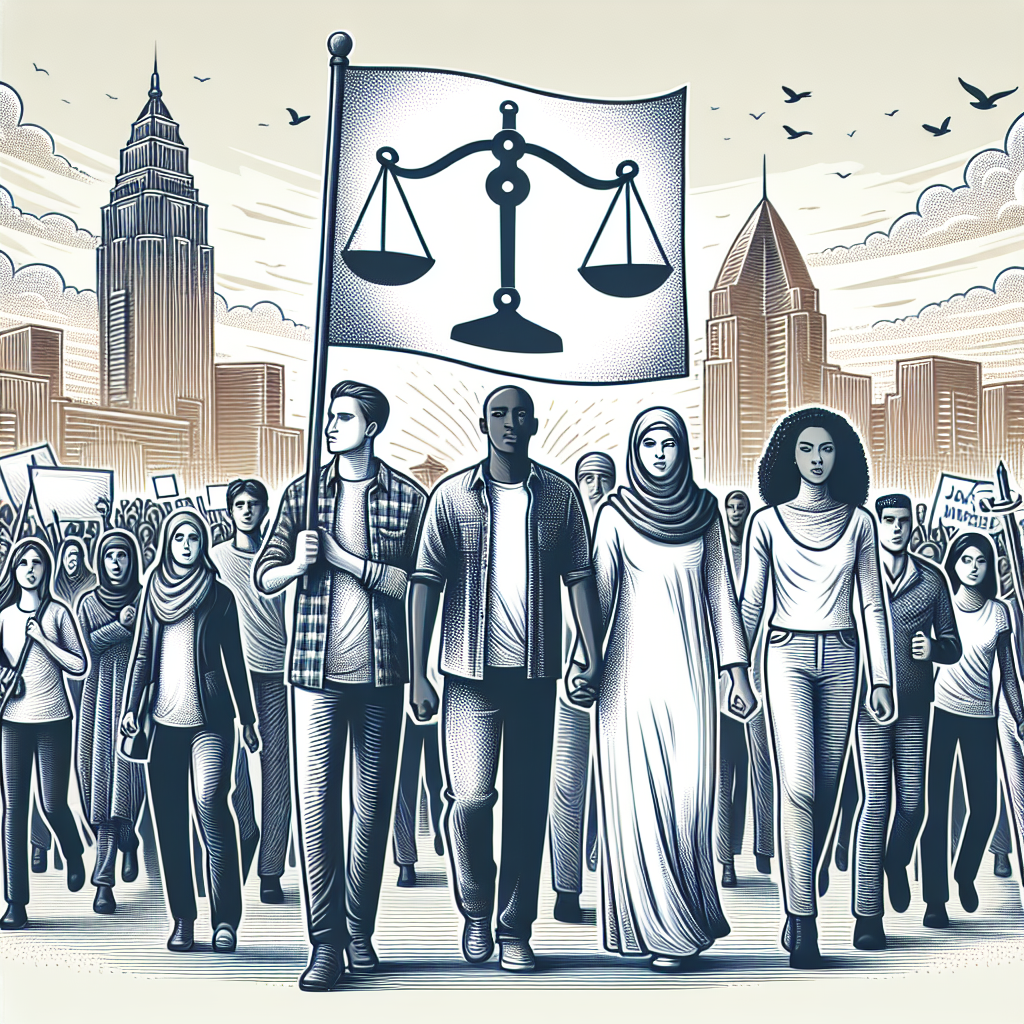
Marching for Justice: The Impact of Activism on Society
Marching for Justice: The Impact of Activism on SocietyActivism has long been a powerful force for change in society. Whether it is fighting for civil rights, environmental protection, or gender equality, activism has played a crucial role in shaping our world. One of the most visible forms of activism is marching for justice. From the civil rights marches of the 1960s to recent protests against police brutality, marching has been a powerful way for people to come together and demand change.
Marching for justice has a number of important impacts on society. One of the most immediate effects is raising awareness of an issue. When thousands of people take to the streets to protest, it is impossible for the media to ignore them. This can help to bring attention to important issues that may have been overlooked or ignored. For example, the Black Lives Matter movement has used marches and protests to shine a spotlight on police violence against black communities, sparking a national conversation about race and policing.
In addition to raising awareness, marching for justice can also put pressure on policymakers to take action. When large numbers of people come together to demand change, politicians are more likely to listen. For example, the Women’s March in 2017, which drew millions of protesters to cities around the world, helped to galvanize support for women’s rights and put pressure on lawmakers to pass legislation protecting women’s rights.
Furthermore, marching for justice can help to build solidarity and create a sense of community among activists. When people come together to march for a common cause, it can create a sense of unity and purpose that can be incredibly empowering. This sense of solidarity can help to sustain movements over the long term and inspire people to continue fighting for justice.
Finally, marching for justice can inspire others to get involved and take action. When people see others standing up for what they believe in, it can motivate them to join the cause. This can help to build momentum for a movement and increase its impact. For example, the March for Our Lives movement, which was started by survivors of the Parkland school shooting, inspired thousands of young people to get involved in the fight for gun control.
In conclusion, marching for justice is a powerful form of activism that can have a profound impact on society. By raising awareness, putting pressure on policymakers, building solidarity, and inspiring others to get involved, marches and protests can help to bring about real and lasting change. As we continue to fight for justice and equality, marching will undoubtedly remain a vital tool in our arsenal.
#Marching #Justice #Impact #Activism #Society,how marchyorktimes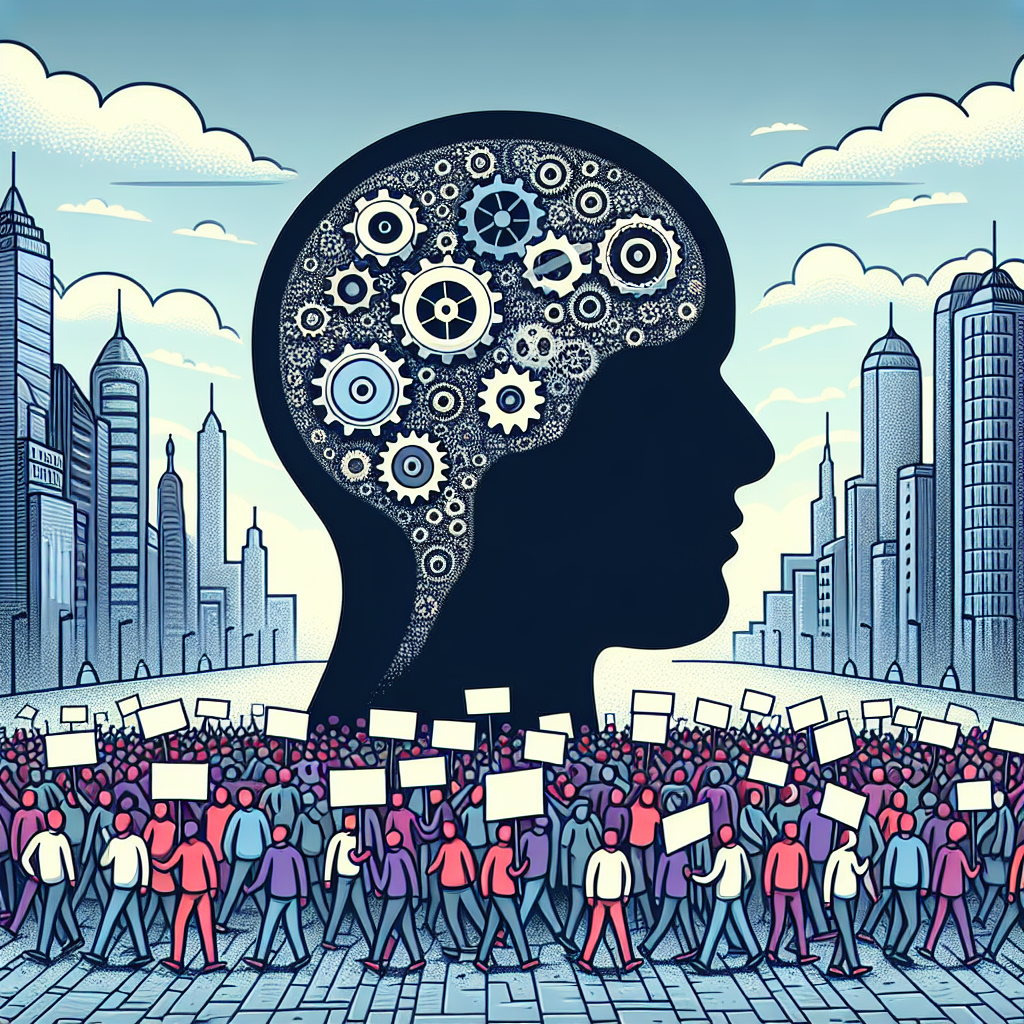
The Psychology of Marching: Understanding the Motivations Behind Activism
Marching is a powerful form of activism that has been used throughout history to bring attention to social and political issues. From civil rights movements to environmental protests, marching has been a way for individuals to come together and demand change. But what motivates people to join a march and take to the streets? The psychology behind marching can help us understand the motivations behind this form of activism.One key factor in the psychology of marching is the sense of belonging and community that it provides. When individuals join a march, they are surrounded by like-minded individuals who share their passion for a particular cause. This sense of camaraderie can be incredibly motivating and empowering, as individuals feel part of a larger movement working towards a common goal. This feeling of unity can help individuals overcome feelings of isolation and helplessness, and give them the courage to speak out and take action.
Another important motivation behind marching is the need for social change. Many individuals who participate in marches are driven by a sense of injustice and a desire to make a difference in the world. By coming together and raising their voices, marchers are able to draw attention to important issues and push for systemic change. The act of marching can be a powerful way for individuals to express their values and beliefs, and to show their commitment to creating a more just and equitable society.
Additionally, marching can be a way for individuals to channel their anger and frustration in a constructive way. In the face of injustice and oppression, it is natural to feel anger and outrage. By joining a march, individuals are able to channel these emotions into action, and to turn their feelings of powerlessness into a sense of agency and empowerment. Marching can be a way for individuals to reclaim their voice and assert their rights in the face of injustice.
Finally, the psychology of marching is also influenced by the power of collective action. When individuals come together in a march, they are able to amplify their voices and make a greater impact than they could on their own. The sheer size and visibility of a march can draw attention from the media and the public, and can help to raise awareness about important issues. By marching together, individuals are able to show their strength in numbers and to demonstrate the widespread support for their cause.
In conclusion, the psychology of marching is complex and multifaceted, but it ultimately comes down to a few key motivations: the need for community and belonging, the desire for social change, the need to channel anger and frustration, and the power of collective action. By understanding these motivations, we can gain insight into why individuals choose to march and how this form of activism can be a powerful force for change. marches will continue to be a powerful tool for individuals to come together, raise their voices, and demand a better world.
#Psychology #Marching #Understanding #Motivations #Activism,how marchyorktimes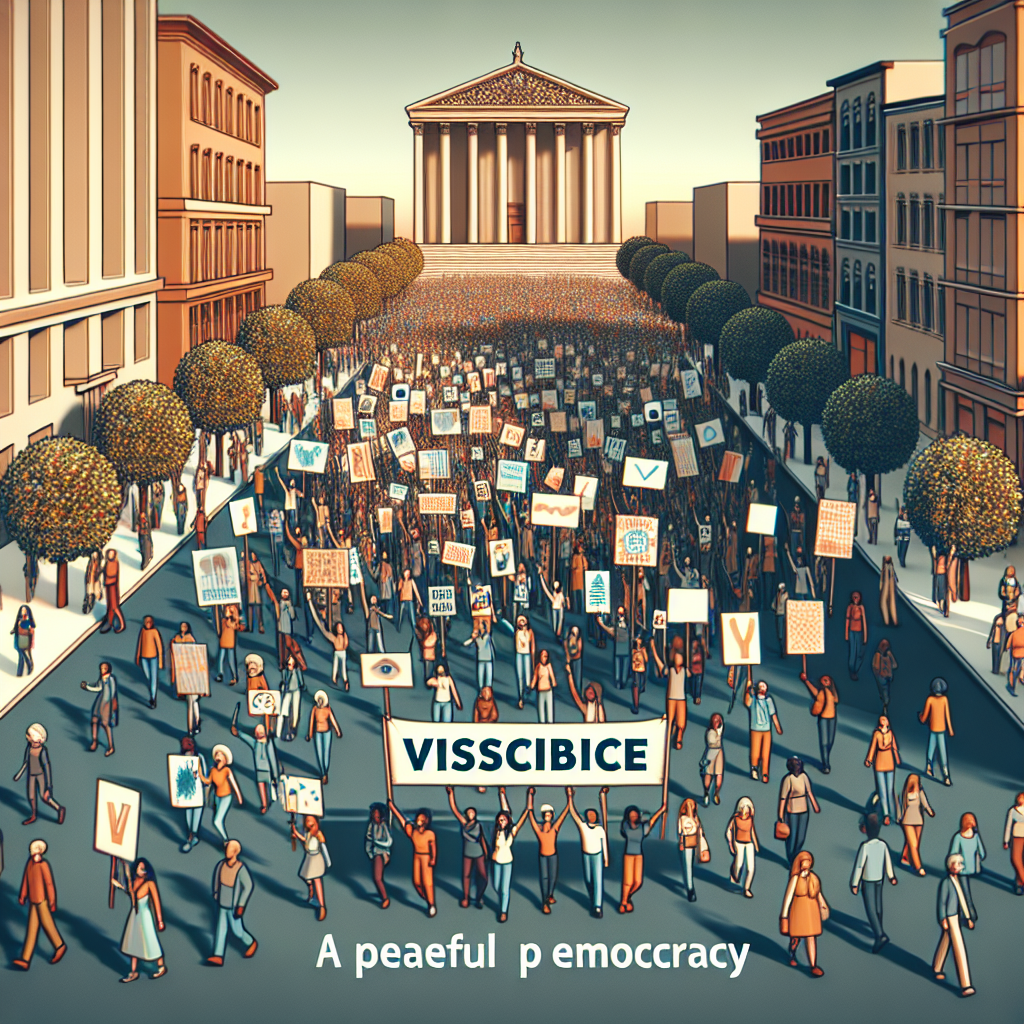
Marching for Our Rights: The Importance of Activism in Democracy
Marching for Our Rights: The Importance of Activism in DemocracyIn a democratic society, the ability to peacefully protest and advocate for change is a fundamental right. Activism plays a crucial role in shaping public policy, holding those in power accountable, and advancing social justice causes. One powerful form of activism is marching – gathering in mass numbers to make a statement and demand action.
Marching for our rights is a long-standing tradition that has been used by individuals and groups throughout history to bring attention to important issues and effect change. From the civil rights movement of the 1960s to the Women’s Marches of recent years, marches have been a powerful tool for raising awareness and mobilizing support for causes that are important to the public.
One of the key reasons why marching is so effective is because it sends a clear message to those in power that the people are united and demand action. By gathering in large numbers, activists are able to draw attention to their cause and demonstrate the strength of their support. This can put pressure on politicians and decision-makers to listen to the concerns of the people and take action to address them.
Furthermore, marching can also help to build community and solidarity among activists. By coming together to march for a common cause, individuals can connect with like-minded people and form networks that can support ongoing activism efforts. This sense of unity and purpose can be empowering and help to sustain momentum for the cause long after the march has ended.
In addition to raising awareness and building community, marching can also have a direct impact on policy and decision-making. When large numbers of people come together to demand change, politicians are more likely to take notice and respond to their demands. This can lead to legislative action, policy changes, and other concrete outcomes that benefit the cause being advocated for.
Overall, marching for our rights is a powerful form of activism that is essential for a healthy democracy. By standing up and speaking out for what we believe in, we can help to shape the future of our society and ensure that our voices are heard. So, the next time you feel passionate about a cause, don’t be afraid to take to the streets and march for your rights – you never know how much of a difference you can make.
#Marching #Rights #Importance #Activism #Democracy,how marchyorktimes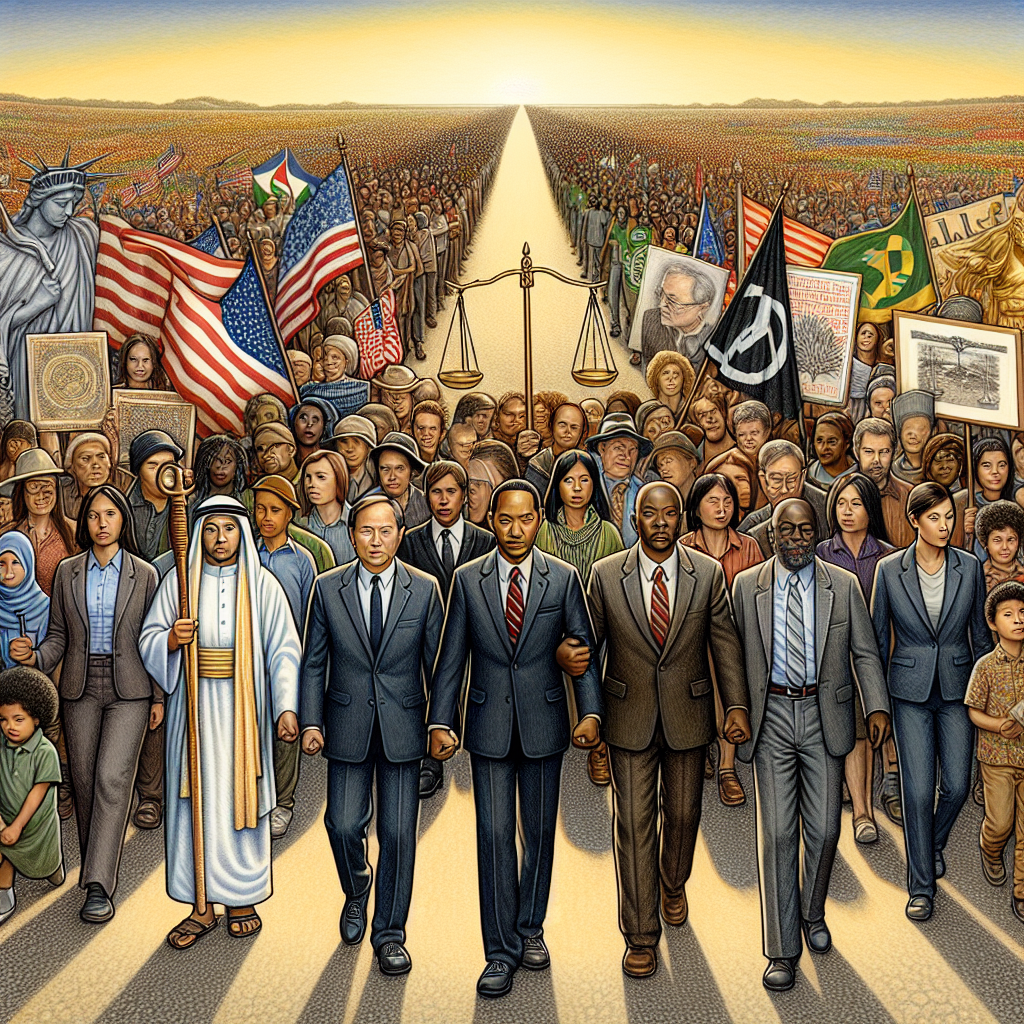
Marching Towards Equality: The History and Future of Activism
Marching Towards Equality: The History and Future of ActivismActivism has long been a driving force for change in society, with individuals and groups taking to the streets to demand equal rights and social justice. From the civil rights movement of the 1960s to the recent #BlackLivesMatter protests, activism has played a crucial role in pushing for equality and challenging systemic injustices.
The history of activism is rich and diverse, with movements often sparked by a single event or injustice that galvanizes people to take action. The civil rights movement, for example, was born out of the segregation and discrimination faced by African Americans in the United States. Led by iconic figures such as Martin Luther King Jr. and Rosa Parks, activists organized marches, sit-ins, and boycotts to demand an end to racial inequality and segregation.
In recent years, activism has taken on new forms with the rise of social media and digital organizing. Movements like #MeToo and #BlackLivesMatter have gained traction online, with activists using platforms like Twitter and Instagram to raise awareness and mobilize support. Social media has also helped to amplify the voices of marginalized communities and bring attention to issues that may have been overlooked by traditional media outlets.
Despite the progress that has been made, there is still much work to be done in the fight for equality. Systemic racism, sexism, homophobia, and other forms of discrimination continue to persist in society, and activists are needed now more than ever to push for change. The recent wave of protests following the death of George Floyd and other Black Americans at the hands of police has once again highlighted the urgent need for reform and accountability within law enforcement.
Looking ahead, the future of activism is bright, with a new generation of young activists stepping up to lead the charge for social justice. Movements like Fridays for Future, led by climate activist Greta Thunberg, and the student-led March for Our Lives have shown that young people have the power to effect change and hold those in power accountable.
As we continue to march towards equality, it is important to remember the lessons of the past and the sacrifices made by those who came before us. Activism is not easy, and progress is often slow and incremental. But with perseverance, determination, and a commitment to justice, we can create a more equitable and just society for all.
#Marching #Equality #History #Future #Activism,how marchyorktimes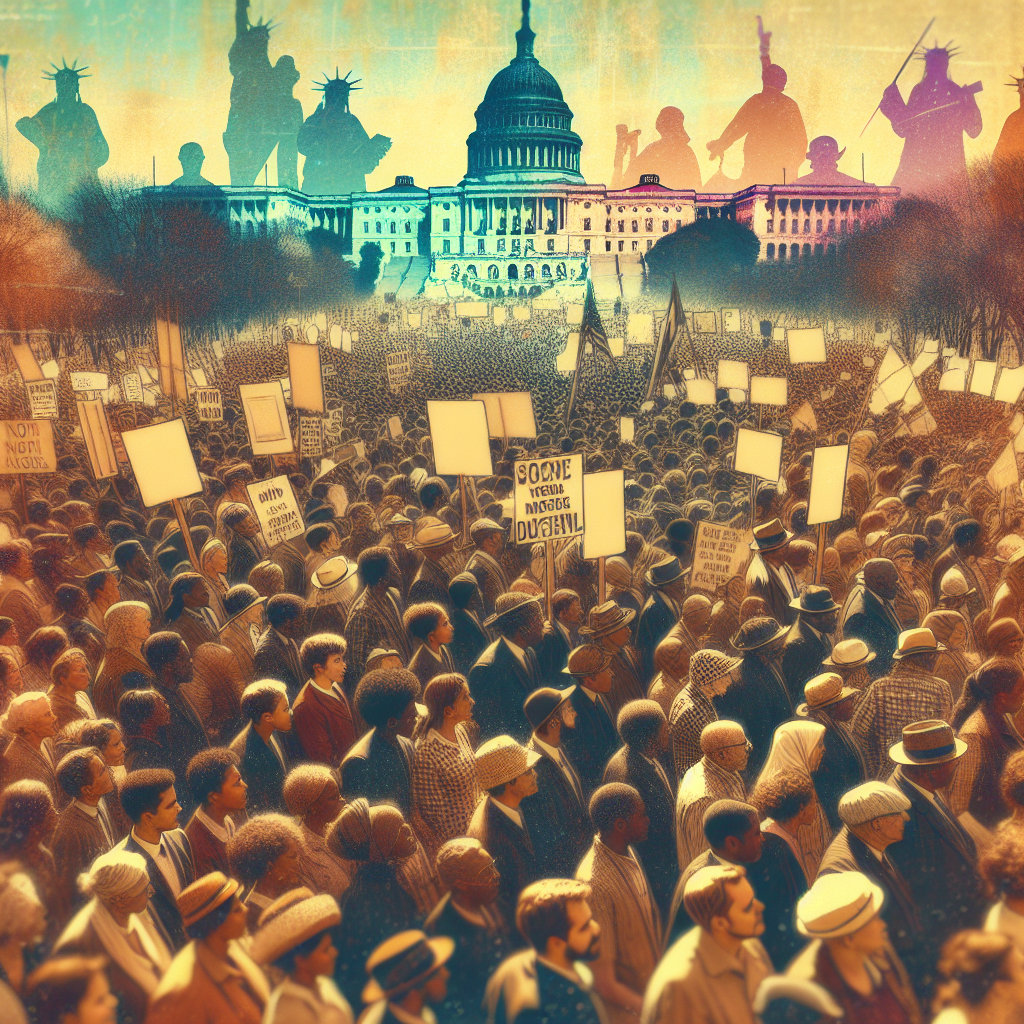
The Legacy of Marches: How Past Movements Influence Present-Day Activism
Marches have long been a powerful tool for social change, serving as a way for individuals to come together and demand justice, equality, and progress. From the civil rights marches of the 1960s to the women’s marches of recent years, these gatherings have played a pivotal role in shaping the course of history and inspiring future generations to continue the fight for a better world.The legacy of marches can be seen in the way they have influenced present-day activism. The tactics and strategies used by past movements have been passed down through the generations, helping to shape the way that activists organize and mobilize today. The lessons learned from past marches have been invaluable in guiding current movements and ensuring that they are effective and impactful.
One of the most important legacies of past marches is the power of unity and solidarity. When individuals come together to march for a common cause, they send a powerful message to those in power that they are not alone in their fight. This sense of unity can inspire others to join the cause and can help to build a strong and resilient movement.
Another legacy of past marches is the importance of nonviolent resistance. The civil rights movement, in particular, was built on the principles of nonviolent protest, and this tactic has been used by activists around the world to bring about change. By remaining peaceful in the face of adversity, activists can show the strength of their convictions and gain the moral high ground.
Past marches have also taught us the importance of persistence and perseverance. Change does not happen overnight, and it often requires years of dedicated effort and determination. The leaders of past movements understood this, and their commitment to their cause inspired others to keep fighting, even in the face of seemingly insurmountable obstacles.
In the present day, we can see the legacy of past marches in the way that activists continue to organize and mobilize for change. The women’s marches that have taken place in recent years have drawn inspiration from the suffragette movement of the early 20th century, while the Black Lives Matter movement has built on the foundation laid by the civil rights marches of the 1960s.
As we look to the future, it is clear that the legacy of marches will continue to shape and influence activism for years to come. By learning from the successes and failures of past movements, we can build a stronger and more effective movement for social change. Marches may be just one tool in the activist’s toolbox, but their power to inspire, unite, and mobilize cannot be underestimated.
#Legacy #Marches #Movements #Influence #PresentDay #Activism,how marchyorktimes
